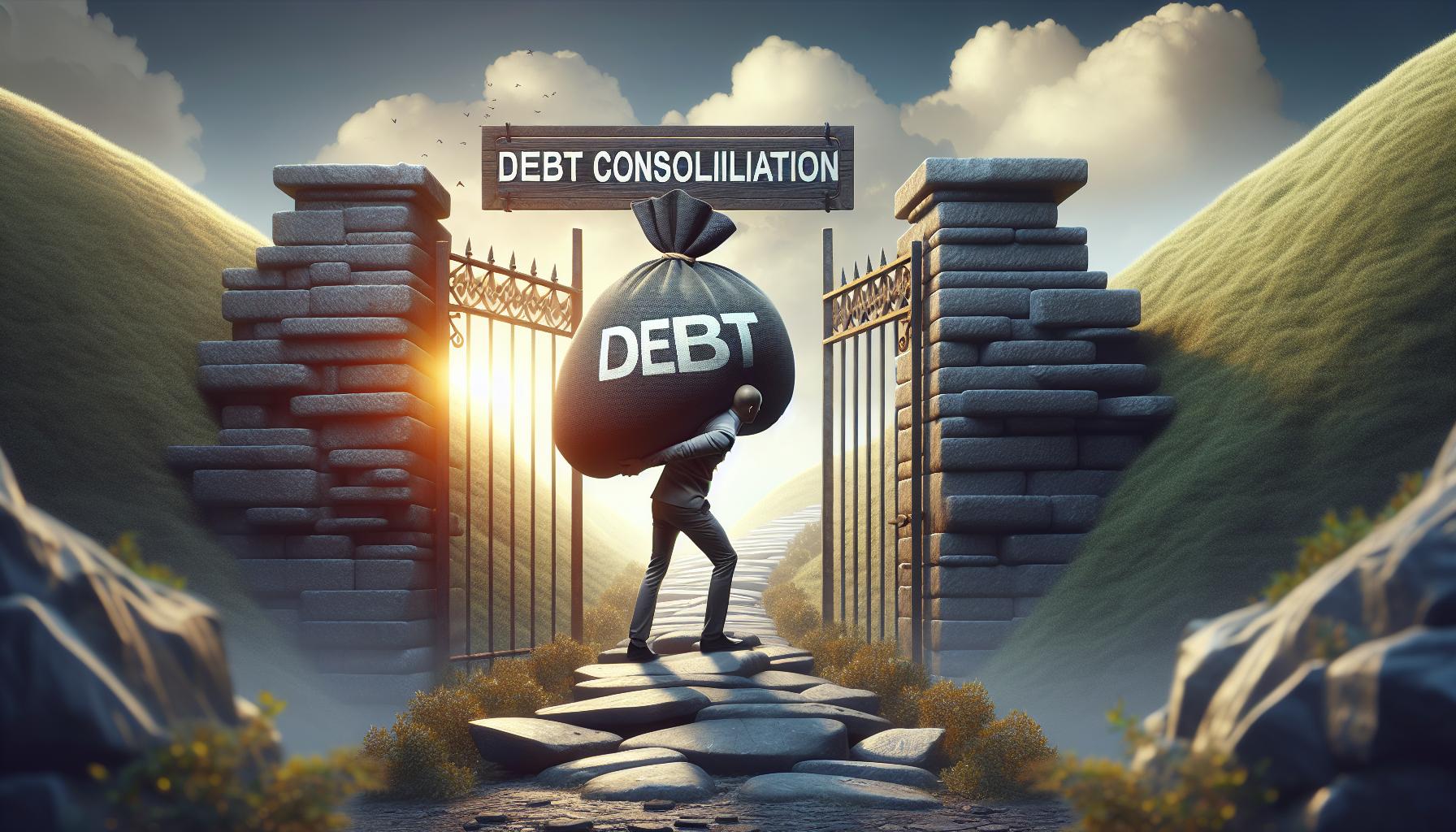
Maximizing Your Debt Consolidation Options: A Comprehensive Guide
Are you inundated with piling debts and searching for the best way to manage them effectively? Let’s walk through the maze of maximizing your debt consolidation options! Debt consolidation is the process of combining multiple debts into one single debt to make your payments more bearable. It’s like taking all of your different puzzle pieces of debt and fitting them together to form a complete picture of financial relief. In this article, we’ll dive deep into the strategies to maximize your debt consolidation options, sift through the benefits, and guide you on maintaining a balanced financial perspective.
Unwrap Your Debt Consolidation Options
Understanding your debt consolidation options is akin to embarking on a journey to financial freedom. The road to financial liberation starts with knowing your options. For instance, there are multiple ways to consolidate debts including debt consolidation loans, credit card balance transfers, home equity loans, and even debt repayment programs. These options are like the various tools in a diverse financial toolbox, each serving its own purpose under different scenarios.
Debt Consolidation Loans and Credit Card Balance Transfers
Debt consolidation loans are like an umbrella under which all of your debts can huddle for protection, rolling multiple debts into one pocket-friendly monthly payment. On the other hand, a credit card balance transfer is like a magic carpet, whisking your debts away from multiple cards onto a single card, often with a lower or even zero interest.
Navigate the Pros and Cons of Each Option
Just as every coin has two sides, each debt consolidation option comes with its own set of pros and cons. It’s essential to weigh these carefully to handpick the one that suits you best. Much like navigating a ship through turbulent waters, you’ll need to steer clear of any option that might land you further into the depths of debt.
Walking the Tightrope: Balancing Pros and Cons
For instance, a debt consolidation loan may offer you a lower interest rate, which is like a soothing breeze on a hot summer day. But the downside could be that you may have to put up collateral, like your home. In case you miss payments, it’s akin to the dark clouds of uncertainty looming over you.
Maintaining a Balanced Financial Vision
Debt consolidation is akin to keeping your finances in harmony, but, striking the right balance is crucial. It’s like a delicious recipe, where each ingredient counts in giving you the perfect taste. The key ingredients here revolve around managing spending habits and ensuring regular and timely payments.
Sift Through Your Spending: The Need for a Budget
A budget can be compared to a roadmap. Just like a map guides you to your destination, a budget guides you towards financial stability. It’s integral to scale back on unnecessary spendings, a simple yet effective step towards consolidating debits smoothly.
Closing Thoughts: Tailor Your Debt Consolidation to Your Needs
Remember, no two financial situations are the same, just as fingerprints vary from person to person. It’s therefore crucial to tailor your debt consolidation strategies to suit your unique needs. It’s like a bespoke suit, fitting perfectly and catering to your personal style. With thoughtful planning and patience, you can maximize your options to manage your debts with ease.
Frequently Asked Questions
1. What is debt consolidation?
Debt consolidation means merging all your debts from various sources into one single debt, making it easier to manage payments and usually offering a lower interest rate.
2. What are the best ways to consolidate debt?
Consolidation loans, home equity loans, credit card balance transfers, and debt repayment programs are some of the best ways to consolidate debt.
3. Does debt consolidation affect my credit score?
Initially, debt consolidation might lower your credit score, but timely payments can help build it back up.
4. Is it necessary to have collateral for a debt consolidation loan?
Not necessarily. While some lenders might require collateral, such as your home, others offer unsecured loans, especially if you have a good credit score.
5. Will consolidating my debts clear all my debts?
While consolidating does simplify managing your debts by rolling them into one, it doesn’t automatically clear all your debts. It’s a tool to manage debts, not a total debt eraser.

